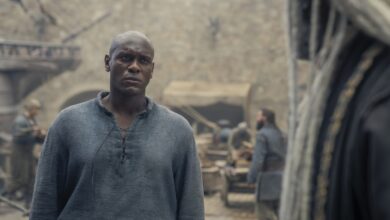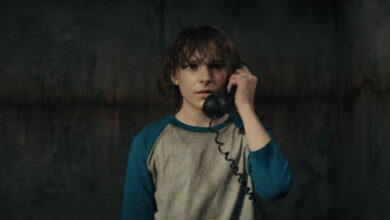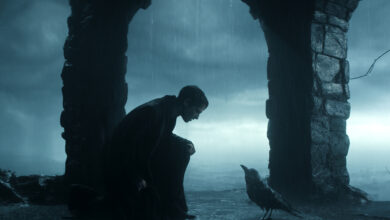House of the Dragon Season 2: Who Dies in Episode 2 and Why?
The second season of the TV series House of the Dragon began with a shocking death in the first episode, leaving the audience on tenterhooks the entire time before reaching the tragic epilogue. The second episode of House of the Dragon Season 2 also continues in the same trail of blood and intrigue as the previous one, through dramatic events that the Green and Black factions can no longer do without due to their past. As House of the Dragon Season 2 continues to air every Monday exclusively on HBO, let’s recap the main events that happened in the second episode of this new season.
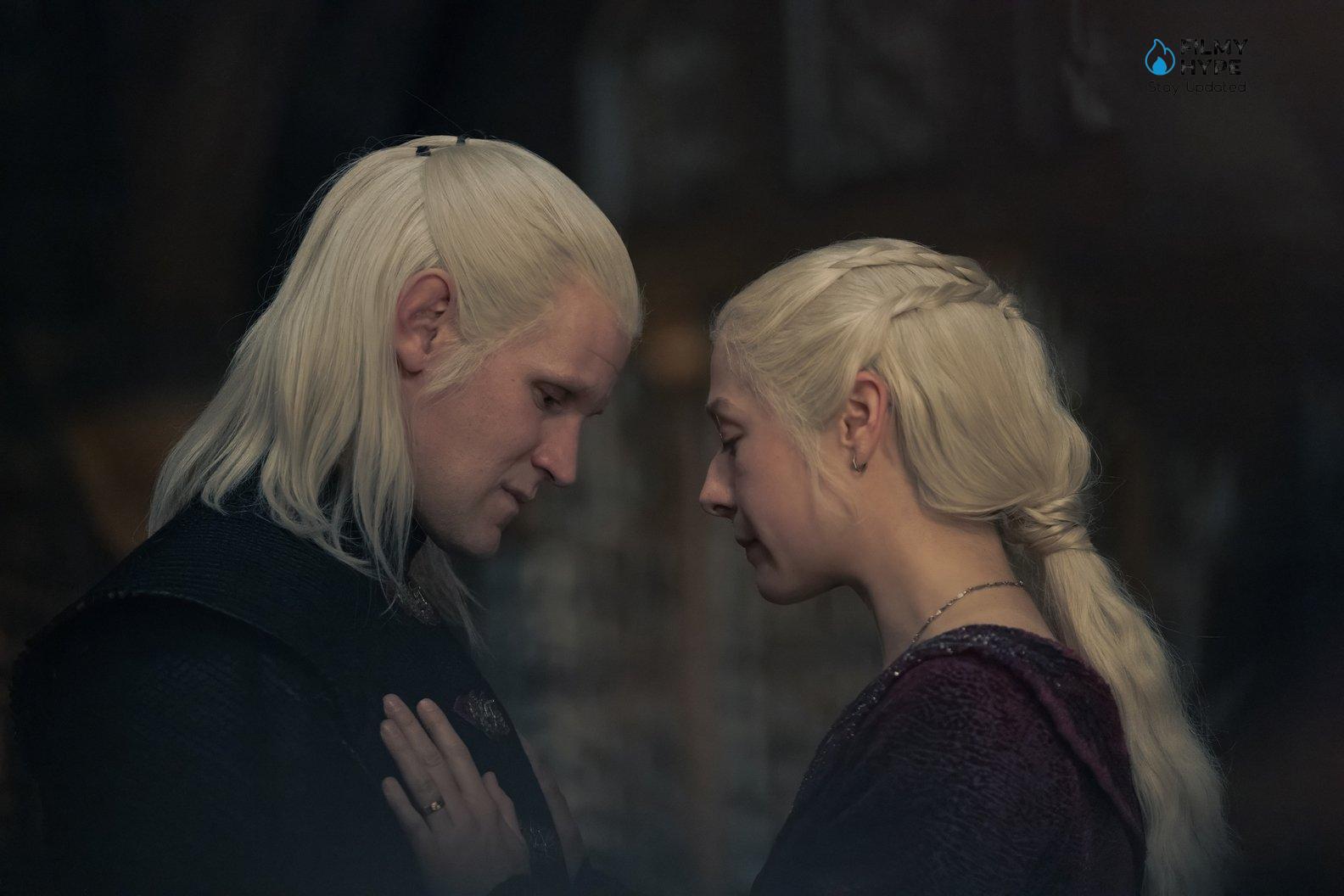
House of the Dragon Season 2: Aegon II as the Mad King?
The first episode of House of the Dragon Season 2 ends with the tragic death of the young Prince Jaehaerys Targaryen, son of King Aegon, which implicitly occurred at the hands of the Blacks. In reality, Daemon asks two henchmen known in House of the Dragon as Blood and Cheese to kill Aemond, the ruler’s brother. However, it is not revealed whose decision it was to kill little Jaehaerys, whether it was a backup plan suggested by Daemon or a sudden improvisation on the part of the two assassins. Eventually, this detail becomes irrelevant to Aegon, who is certain that the Blacks commissioned his son’s murder and therefore only contemplates revenge. Meanwhile, Sangue (Blood) is captured by the Greens and confesses to having been hired, together with a rat killer whose name he doesn’t know, by Daemon Targaryen. Aegon kills Sangue with his own hands with a nailed mace and later orders all the rat killers in his service to be hanged, to make sure he also eliminates the other murderer of his son. In the end, Cheese was also among the ranks of hanged victims, while unfortunately, the others were completely innocent people.
Aegon’s decision backfires, especially after his grandfather Otto’s previous attempt to gain new followers for the Green Cause. To foment more hatred towards Rhaenyra and discredit her in the eyes of the people, the Hand of the King organizes a funeral procession for little Jaehaerys during which the Queen of the Blacks is accused of her brutal murder. A macabre maneuver that seems to be paying off. At least until dozens of corpses of ordinary people appear in front of their families on those same city streets, hung by the same King who calls for justice for his son. After Jaehaerys’ death, Aegon loses his mind and carries out unjustified carnage to punish a single culprit. An action that recalls that of his ancestor Aerys II, also known as the Mad King due to some questionable decisions of his. First of all, the desire to raze King’s Landing to the ground, to avenge the murder of his son Rhaegar by Robert Baratheon. Even in that case, there was only one direct culprit, but the sovereign was too blinded by anger and pain to think clearly and thoughtfully. The same thing happens with Aegon insinuating the unhealthy doubt about the hereditary madness attributed to some Targaryens. Is Aegon like the Mad King? What is certain is that the new sovereign has not even had time to sit on the throne, he has already committed a terrible crime.
The Funeral March for Jaehaerys?
Over time, Otto Hightower has revealed himself to be an excellent strategist capable of using even the most tragic events to his advantage and in the face of which, unlike him, others immediately lose control. When King Viserys passes away, the Greens hide the king’s death from the Kingdom until his son Aegon is crowned illegitimately. A clever move to prevent the true heir Rhaenyra from claiming her rights following her father’s death. It will be Otto himself who will announce to the people the King’s passing and his last (alleged) wishes regarding his successor to the Throne.
Even with the death of Prince Jaehaerys, the Hand again anticipates his moves to the detriment of Rhaenyra, making it increasingly difficult for the latter to claim her legitimate claim to the Throne. Taking advantage of the murder of a child, his great-grandson to be precise (quote ” Let no one say that I am not grieved! “), Otto puts Rhaenyra on the public gallows. The sovereign during the funeral procession for little Jaehaerys, is even pointed out as the Cruel, like the tyrant ancestor Maegor I, son of Aegon I the Conqueror. Who, unlike the Black Queen, actually committed unspeakable crimes against his family and the entire realm. Otto’s maneuver – and implicitly that of Daemon – does not discredit Rhaenyra only in the eyes of the people, but also in those of her supporters. In fact, among the Council of Blacks, some doubt the good faith of their sovereign, believing that the pain of the loss of her son Lucerys may have encouraged Rhaenyra’s revenge with the well-known law of retaliation. A terrible accusation that, between doubts and insinuations, further compromises the Princess’s already precarious rise to the Throne.
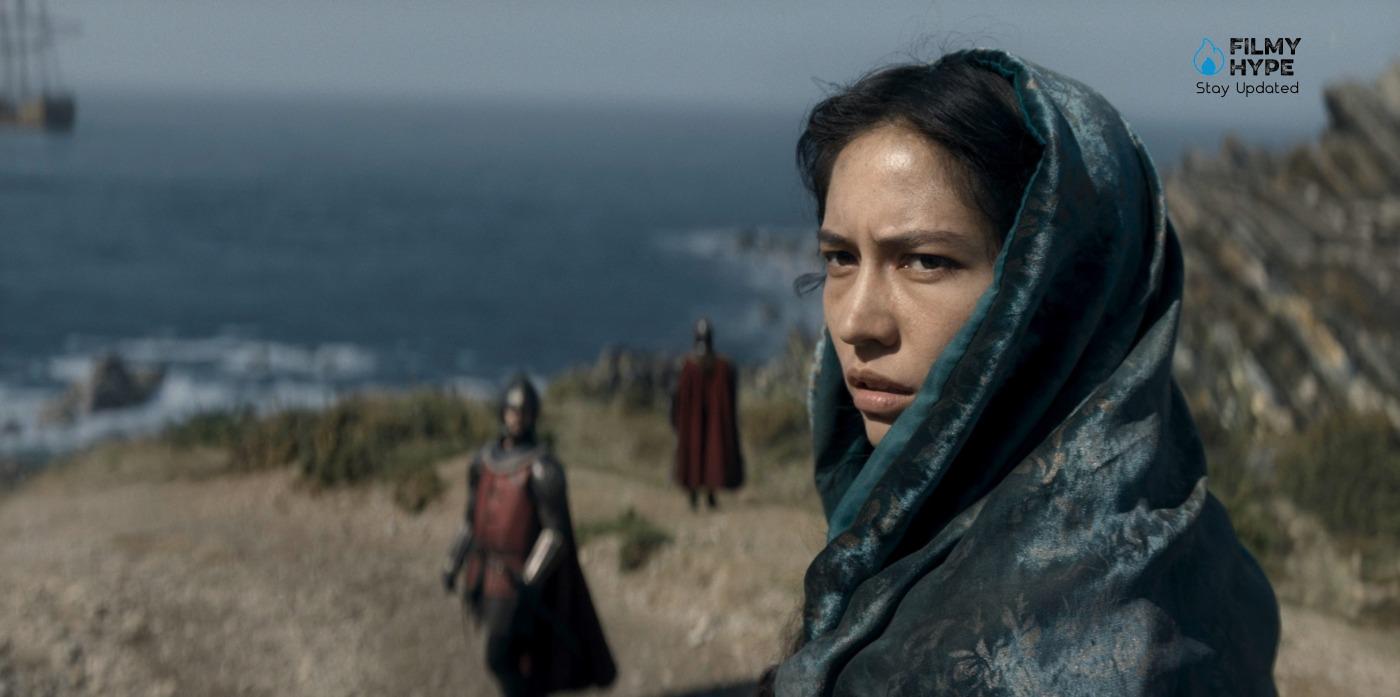
A distorted perspective according to which, if Rhaenyra is capable of killing children before becoming Queen, who knows what much worse actions she could commit once she inherited the command of the Kingdom? The fact that Rhaenyra is suffering from her loss is undeniable, but as she points out at her Council, she would not inflict the same pain on another mother precisely because she knows what it means. But even if Rhaenyra is not directly responsible for Jaehaerys’ death, Helaena just like her is still mourning the death of a son. Two particular moments seem to offer a singular parallel between the two sovereigns. During the funeral procession, Helaena looks up and stares for a few seconds at the petals thrown by the crowd. Rhaenyra, when she is in the room with her younger children, turns towards the window above where grains of dust appear in the beam of light that penetrates the shutters. Perhaps all this will turn out to be a premonition from Helaena or just a subliminal way to highlight the same type of pain that unites them.
The Fight Between Rhaenyra and Daemon?
In the second episode of House of the Dragon Season 2, a bitter reality shines through: once again Daemon’s reckless actions have repercussions like a boomerang effect on Rhaenyra’s life. In the past, the uncle and nephew’s outing to the pleasure houses of King’s Landing triggered a series of chain reactions that undermined the Princess’s reputation and her legacy to the Throne. The recent attempted murder of Aemond has done nothing but fertilize an already fertile ground, contributing to making Rhaenyra less and less unworthy of reigning in the eyes of others. In both cases, for those who are ready to point the finger, it makes little difference who the real culprit behind certain actions is. What is certain is that when a brand is sewn onto oneself, it becomes difficult if not impossible to completely clean up one’s image.
The discussion that occurs between Daemon and Rhaenyra due to the murder of little Jaehaerys also brings to the fore another old unfinished business between the two Targaryens. Daemon has always coveted the Throne of Viserys as the first and only direct male heir. For this reason, when the King chooses to proclaim his daughter Rhaenyra as the future Queen, Daemon feels robbed of something he considered his. From that moment on, all the actions that the Prince takes together with Rhaenyra or toward her exude inevitable flashes of bad faith. The Black Queen herself admits that she has never been able to fully trust her husband since she was “only” her uncle, although she has tried hard every time to believe him.
After all this time, Daemon remains a figure shrouded in an indecipherable dark side, even though on several occasions Prince Targaryen has demonstrated that he has a noble heart beneath his dragon armor. Especially when he places the crown on the head of his brother Viserys, now debilitated and close to death, just as he later places the same emblem on the head of a Rhaenyra who has just usurped her throne from him. Two situations where if Daemon had wanted, he could have worn that crown himself and claimed the coveted sword seat, the same way Aegon does later. The truth is that Daemon, despite being a restless and impulsive spirit, knows well when it is time to remain silent and when it is appropriate to act. His only problem is his lack of adherence to rules, due to which Prince Targaryen never thinks about the consequences of everything he implements.
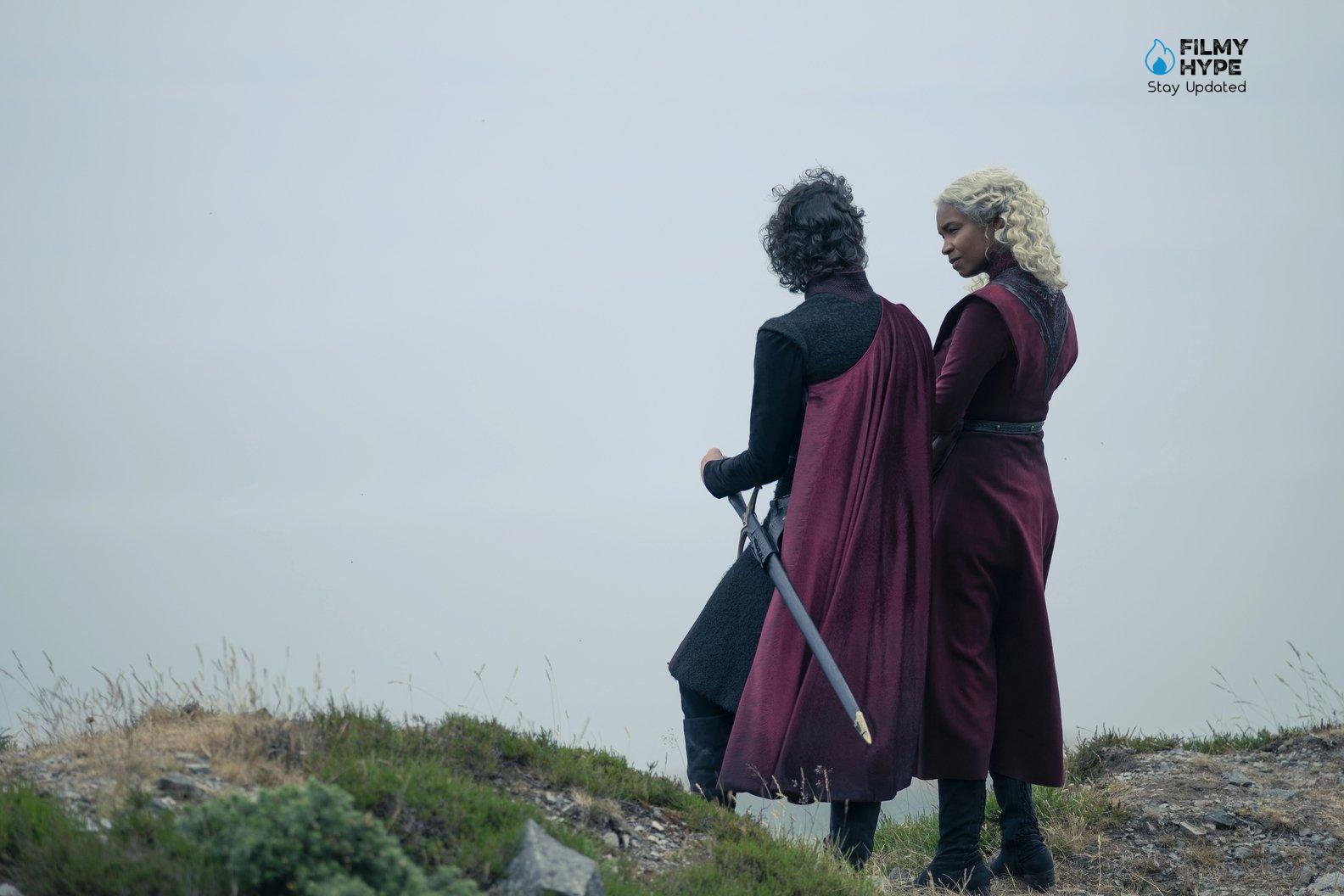
Regardless of all this, there remains a dilemma that haunts both Rhaenyra and the viewers. Would Daemon be capable of having a child killed? Since it is now clear that Daemon’s purpose is to start the real war between Greens and Blacks, the answer to this question could be “maybe”. But there is another fundamental unresolved point related to this question. Does Daemon want to fight to give Rhaenyra back the Throne that rightfully belongs to her or to avenge his second dethronement? Viserys’ brother has not lost the possibility of being her successor only when his niece is proclaimed as her heir, but also when she is in turn deprived of this right. If Rhaenyra reigns over the Continent, Daemon as King consort can assert her authority in some way. But if the enemies sit on the Throne, Daemon doesn’t even have crumbs left.
Aegon Banishes Otto from the Red Keep?
In the first season of House of the Dragon, we witness the ascension to the Throne of Aegon II, after the death of his father Viserys. An illegitimate succession engineered by the Greens well before the death of the sovereign, but which nevertheless seems to be somehow justified precisely following this event. On his deathbed, Viserys mistakes Alicent for Rhaenyra and reminds her of their ancestor Aegon I’s prophecy of the Song of Ice and Fire. The Queen, not knowing the Targaryen prophecy, misinterprets her husband’s words and believes that Viserys wants their son Aegon II as successor.
A misunderstanding that fits perfectly to encourage even the most reticent to the cause, but which no one has ever really believed. In the second episode of House of the Dragon Season 2, a heated discussion occurs between Aegon and his grandfather Otto, where the latter implies that he knows what the truth is. As Aegon himself always thought, if his father throughout his life never chose to proclaim him as successor, it is clear that he had no intention of doing so. However, after Viserys’ death, Alicent convinces his son otherwise by claiming that his father wanted to see him on that throne.
A concept that the young King reiterates to Otto when the latter, after his nephew’s latest reckless actions, regrets the times of Viserys’ reign. In response, the Hand laughs in Aegon’s face, treating him as naive, as he thinks that his father chose him as the future heir. A very eloquent scene where it is shown that Otto never believed what his daughter Alicent reported regarding Visey’s last wishes. And probably not even Alicent herself has ever been sure what she heard that night. But before stabbing Rhaenyra in the back, her former best friend needed any useful pretext to clear her conscience and act thus metaphorically- in good faith.
A type of pretext also used by Aegon to push Otto away, while at the same time maintaining a semblance of genuineness. Otto’s words hurt his nephew, as they throw in his face a reality that Aegon has had before his eyes since his birth. But now that he is sitting on that throne anyway, the new sovereign no longer wants his position to be questioned. Aegon then follows the previous advice of Larys Strong, who implicitly invites the King to get rid of Otto Hightower. The latter, having been the Hand of Viserys, symbolically continues to maintain the climate of the old realm while in the meantime the King has become another. Otto’s scolding of Aegon thus becomes the excuse with which the sovereign dismisses the Hand, freeing himself from the pressure that leads him to live in his father’s shadow even after the death of Viserys himself.
The Attempted Murder of Rhaenyra?
Although Rhaenyra was not the instigator behind the murder of little Jaehaerys, the Greens still go on the counterattack to avenge the death of the young Prince. In reality, not all the Greens, but only one of the members who is gradually revealing himself to be a real antagonist: Ser Criston Cole. The Knight, feeling guilty for spending the night with Alicent while Jaehaerys was killed, tries to personally undo the damage by commissioning Rhaenyra’s murder. Criston puts Ser Arryk Cargyll in charge of the mission, using him as a scapegoat on whom he also vents all his anger repressed by feelings of guilt. Arryk, put under pressure, accepts the assignment and thus introduces himself to Dragonstone by passing himself off as his twin Erryk, already resident in the fortress.
The ending of the second episode of House of the Dragon Season 2 stages a bloody duel between two brothers, who, to maintain faith in their oaths and their honor, kill each other, sacrificing themselves totally for their Kingdom. Something that Criston is unable to do despite him demonstrating his full support for the cause and the Crown. Otherwise, precisely because of his remorse, Cole would have had to personally go and kill Rhaenyra, assuming all the responsibilities and consequences of the case. The Cargyll brothers in their dramatic murder-suicide demonstrate the dignity and loyalty of true Knights, going to great lengths to protect those they have sworn to serve at the expense of their own lives.
Although Arryk has chosen to remain in Aegon’s service, he does not attack Rhaenyra secretly or through acts of cowardice, but presents himself to the Black Queen, showing his face and making her aware that he has no other choice. For his part, Erryk, who has instead chosen to follow Rhaenyra, cannot help but fight his brother while continuing to remind him of the good he felt towards him. Although the two brothers were not among the main protagonists of House of the Dragon and therefore their deaths may not particularly involve the public, their dramatic demise remains above all impressive for what it represents.
While both brothers continue to love each other, they cannot break the oath they took as Knights, so despite themselves they have to challenge each other. When Erryk defeats his twin, he has done his duty by protecting his Queen, but at the same time, he cannot live with Arryk’s blood on his hands. For this reason, after having fulfilled his obligations towards the Crown, Erryk in turn decides to take his own life as he cannot bear the burden he faced with the murder of his brother. Before committing suicide, Erryk asks Rhaenyra for forgiveness just as Arryk had done in a certain way before trying to kill her. Even the Black Queen and Helaena, feeling implicit guilt for the deaths of Lucerys and Jaehaerys, have the blood of their children on their hands. Proof that in the end, it doesn’t change who was the material author of the deaths of others, because the pain of losing someone you love will never cease to exist. And Erryk knew it well.


